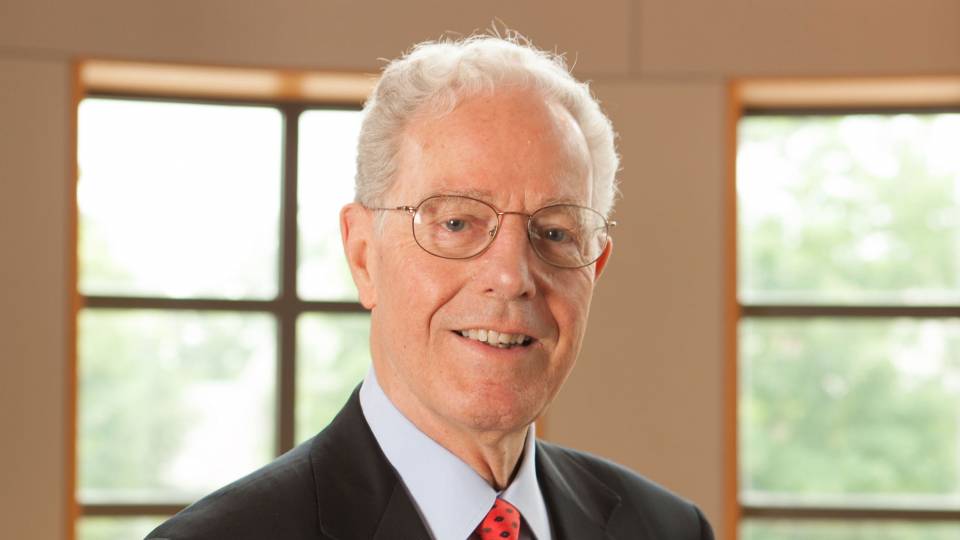Over the past half-century, Medicare and Medicaid have become bedrocks of the U.S. health care system, together providing insurance coverage for more than 100 million people. Yet, these programs remain controversial, a battleground between those opponents who perceive them to be costly, "big government" programs and supporters who see them as essential to the nation's commitment to safeguard the most vulnerable among us. Not surprisingly, many myths have emerged in the highly politicized debate about these policies. The 50th anniversary of both programs on July 30 offers a chance to set some of the record straight.
Myth 1: Medicaid originated as a welfare program for people in poverty. It remains exclusively a program that benefits the poor.
It is true that Medicaid, which initially provided matching federal dollars for states to provide medical assistance to people in poverty, was passed as an afterthought in 1965 and has carried the stigma of poorly financed "welfare medicine." Yet, Medicaid has expanded to cover people above the poverty line as well as children and has become increasingly an entitlement for even middle-class individuals and families. The irony of history is that this poor program now covers more people — 66 million in 2014 — than Medicare, which covers 52 million people.
Myth 2: Hospitals became desegregated as a result of the Civil Rights Act of 1964, passed one year before Medicare and Medicaid.
The passage of Medicare and Medicaid was integral to the desegregation of medical care in Southern states. As health policy expert David Barton Smith points out, the implementation of Medicare in 1966 was deeply intertwined with the implementation of civil rights legislation. Segregated hospitals could not receive Medicare funds, and the threat of losing Medicare (as well as Medicaid) dollars became a powerful tool for the federal government to end racial segregation in health care.
Myth 3: Over the decades, Democratic presidents and Congresses have championed expansion of these programs while Republicans have fought to reduce their scope, eligibility, coverage and costs.
Ronald Reagan lobbied against Medicare before its passage, stating it was a fundamental assault on liberty. As president, he continued to criticize big government. But by the end of his presidency, Reagan had accepted expansion of Medicare with his support for Medicare Catastrophic Insurance. Rhetoric aside, Republican presidents such as Richard Nixon also oversaw costly but crucial new benefits — coverage for people with kidney disease and individuals with permanent disabilities — and George W. Bush championed Medicare's expansive prescription drug coverage benefit in 2003. Bush did so with a Republican Congress. Democratic presidents also have expanded these programs; Bill Clinton established the Children's Health Insurance Program in 1997, which supplemented and expanded Medicaid's commitments, while Republicans controlled Congress.
Myth 4: Medicare is more popular than Medicaid and has much stronger political support.
While it is true that Medicare enjoys slightly greater popularity than Medicaid, numerous polls have shown that both programs remain popular with Americans. According to a January 2013 Kaiser poll, nearly 50 percent would not support cuts to Medicaid. The program has survived efforts to block grant it and has grown to provide security for children, families above the poverty line and, in the wake of the Affordable Care Act (ACA), many middle-class Americans.
Myth 5: Medicare and government programs have done a poor job of containing the rising cost of health care when compared with the private sector.
While this claim makes good politics, it is simply not true. As political scientist Jacob Hacker noted, from the mid-1980s to the 2010s Medicare outperformed the private sector despite private plans adopting many of Medicare's payment modalities, including the diagnosis-related groups approach to paying hospitals. Princeton economist Uwe Reinhardt observed that the idea of reimbursing hospitals based on diagnostic categories (rather than fee-for-service) constituted a truly revolutionary innovation that was copied by many countries around the world, and eventually even by the private U.S. health insurance system. These kinds of initiatives continue under the federal government's Center for Medicare and Medicaid Innovation, a new office created by the ACA.
Myth 6: Only recently have state legislatures and governors resisted Medicaid expansion under the ACA.
From the start, many states were slow to adopt Medicaid. By 1969, five years after passage, 12 states hadn't joined the program, and it wasn't until 1982 that Arizona became the final state to join. By then, states decried the rising toll of federal health care spending on state budgets but, at the same time, also recognized the huge economic benefits of these programs for fields such as cardiology, for nursing homes and for academic health centers. This explains why, although many states vilify the ACA's Medicaid expansion, some red states such as Arizona decided in 2013 that the benefits of Medicaid expansion under the ACA were too good to turn down. It remains to be seen whether other red states will follow Arizona's ACA path.
Myth 7: Today's political fractiousness over the ACA, Medicare and Medicaid is unprecedented.
Political and ideological divisiveness was present at the origins of Medicare and Medicaid and has rarely subsided. In contrast with the ACA — which passed by the slimmest of margins in the 2010 Democratic Congress under a Democratic president — Medicare and Medicaid passed at a time when President Lyndon Johnson enjoyed unprecedented, large, liberal Democratic majorities in both houses of Congress following the 1964 election — support which proved crucial amid fierce Republican opposition to Medicare as "socialized medicine." Both of these programs were still in the bull's-eye of conservative reform at the 30th anniversary in 1995. Republicans in control of Congress pushed for converting Medicaid to a block grant program and for establishing Medical Savings Accounts in place of Medicare.
Myths about Medicare and Medicaid persist for the simple reason that they are politically useful even as Americans continue to grapple with questions of cost, compassion and the role of government in their lives. But the facts of history are stubborn. Despite the myths and political turmoil, those who support Medicare and Medicaid can take satisfaction in these programs, and their underlying moral commitments, having reached the half-century mark.
This piece first appeared on the OUP blog.
Editors of "Medicare and Medicaid at 50: America's Entitlement Programs in the Age of Affordable Care" (Oxford University Press, July 2015) include, from Princeton University, Keith Wailoo, the Townsend Professor of History and Public Affairs, and Julian Zelizer, the Malcolm Stevenson Forbes, Class of 1941, Professor of History and Public Affairs. Additional editors include Alan B. Cohen, professor of health policy and management at Boston University Questrom School of Business, and David C. Colby, former vice president of policy at Robert Wood Johnson Foundation.
Essay contributors from Princeton include Wailoo; Zelizer; Uwe Reinhardt, the James Madison Professor of Political Economy and a professor of economics and public affairs, and Paul Starr, the Stuart Professor of Communications and Public Affairs.

